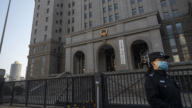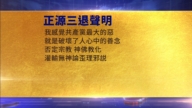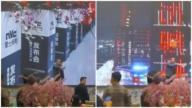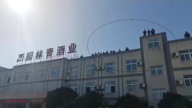【新唐人2011年12月10日訊】大陸著名經濟學家郎咸平,繼10月下旬在遼寧瀋陽一場演講中預告中國經濟一定破產之後,日前他在一場高端講座演講時,再次道出中國房地產的危機,他說如果政府打壓樓市成功,房價降下來了,那中國就完了!經濟學家認為,政府打壓樓市是經濟制度失效,甚至是政治制度全面失效的反映。
郎咸平在演講中指出,中國絕大部分產能嚴重過剩,而房地產是中國最後一個支柱產業。他說,現在中國的房地產,好比一座火山,政府的打壓就是想要把這個火山壓住。如果壓住了,熔岩不會自動消失,一定會從岩層中更為薄弱的環節漏出來,那麼後果就是:惡性通貨膨脹、經濟再次探底,甚至引發火山爆發,最後一個支柱產業畫上句號。
但是,目前,中共內部究竟要刺激經濟,還是控制通漲、控制房價﹖有搖擺不定的跡象。而民眾關心的是中共打壓樓市,有沒有膽量讓房價跌到百姓買得起的程度﹖
大陸經濟學家綦彥臣表示,打壓房地產業最直接的利益損失,是富人承擔不是窮人。而房地產崩潰以後,最受益的是城市大量買不起房的人,比如說城市特困者、畢業十年的北漂,或者蟻族。他們可能在房價劇跌以後買得起房。綦彥臣還提出,政府可以藉此出臺一些政策,比如說這些人可以領「首戶住房」。
大陸經濟學家綦彥臣:「從政策模式,政府應該拿出錢來,中央財政應該直接發這樣的專項債券來收集這個錢,買那些有價無市的空房子,然後零首付賣給或者租給北漂、蟻族,還有城市特困戶。」
但是,目前房地產交易量越來越少,地方財政收入在萎縮。而保障房政策是地方多出、中央少出,因此,綦彥臣認為,中國的保障房建設也不容易解決問題。
大陸經濟學家綦彥臣:「房地產交易也在下行,土地出讓金它拿的越來越少,也可以預期到往後是更少。中央和地方因為資金問題,準會互相扯皮,我們這已經看到了,現在就能看到了。」
綦彥臣說,中國古代就有中央收儲這樣的宏觀調控政策,西漢中期以前也有一個「平准制度」,所以他認為,由執政當局拿錢收購房子是可行的。
大陸經濟學家綦彥臣:「中國房地產市場弄到今天這個樣子,是經濟制度進而是政治制度全面失效的反映。如果你說這兩個制度還有效,那你就拿錢收房,這是最簡單的是吧?」
10月22號,郎咸平在瀋陽的一場演講中,喊出了驚人的「中國經濟沒救了」的聲音,他根據中國製造業將要坍塌和地方債已經達到債務危機程度等因素,得出了「中國政府已經破產」、「中國將會陷入幾十年大蕭條」、「中國將會成為全世界最窮國家」幾個結論。
對此,博客作家張宏良認為,郎咸平的依據還僅僅是中國經濟的某個方面,如果考慮到中國經濟的各個方面,特別是再考慮到中國政治等方面,情況可能比郎咸平想像的還要更加糟糕。
張宏良還說,眼下正在紛紛逃離中國的富豪、資本和熱錢,十分明確的告訴國人:暴風雨就要來了。
新唐人記者趙心知、黃容、孫寧採訪報導。
Real Estate Market Suppression
In a speech in Shenyang, Liaoning in late October,
Lang Xianping, a well-known economist in China, addressed China’s looming bankrupcy.
Recently, Lang gave a lecture using a high-end presentation.
He spoke out about the real estate crisis inChina once again.
He said if the government successfully suppressed the property market,
and housing prices decrease, China will end.
Economists believe that the government suppression of
the property market is the failure of the economic system, and even the political system.
Lang pointed out in his speech that most of China’s industries
have exceeded capacity, and real estate is the last pillar.
He said that China’s current real estate is like a volcano,
while the government wants to suppress it.
If it succeeds, the lava will not disappear,
but will leak out in other weak places,
then the consequences will be hyperinflation,
economic collapse and possible volcanic eruptions,
putting an end to the last backbone industry.
Whetherit’s stimulating the economy, or controlling inflation
and prices, The Chinese Communist Party (CCP) is showing signs of wavering.
The public concern is the CCP suppression of the property market,
and if it dares to let property fall below the level people can afford.
Qi Yanchen, a mainland economist said the direct interest loss
will be paid by the rich, but not the poor.
After the real estate collapse, urban people who could not afford
a house before will benefit the most, like poor urban people,
workers from northern China who has high school degrees,
or people who live in very tiny spaces.
They may be able to afford housing in a sharp price drop.
Qi also said the government could make some policies,
such as letting these people get ‘first-family homes’.
Qi: “From the policy model, the government should allocate
the money, the central government should directly issue
special bonds to collect the money, and then buy empty houses
which nobody will buy in order to sell or lease them to the poor.
Currently there are fewer and fewer real estate transactions,
and local government revenue is shrinking.
The public housing policy is to collect more money from local
instead of centralgovernment.
So Qi believes that public housing construction is not an easy
solution to the problem.
Qi: “Now, real estate transactions are going down, and
there is less and less land transfer money coming in. It can be expected to be less in the future.
Then because of funding issues, the central and
local governments will wrangle with each other. We can see the problem even now.”
Qi said that in ancient China there was a macro-control policy
such as central purchasing and storage.
In the mid-Western Han Dynasty,
there was a ‘stabilization system’.
So he thinks that purchasing houses by the ruling authorities
is feasible.
Qi: “The state of China’s present real estate market is the
reflection of failure in the political and economic systems.
If you (CCP) say these two systems are still effective,
then you can go ahead to purchase the houses. This is the most simple way, isn’t it?"
On October 22nd, in a speech in Shenyang, Lang shouted,
“China’s economy can not be saved."
Based on China’s manufacturing industry collapse and local
governments’ debt crises, he concluded that
“China’s government is bankrupt," “China will fall into the
Great Depression a few years," “China will become the world’s poorest country."
In this regard, the blog author Zhang Hongliang believes that
Lang is just basing his opinion on some aspects of the Chinese economy,
if you take into account all aspects of the Chinese economy,
especially taking into account the political aspects, the situation may be even worse than Lang expected.
Zhang Hongliang added that currently the rich, capital and hot
money are fleeing out of China, which clearly tells people a storm is coming.
NTD reporters Zhao Xinzhi, Huang Rong and Sun Ning































